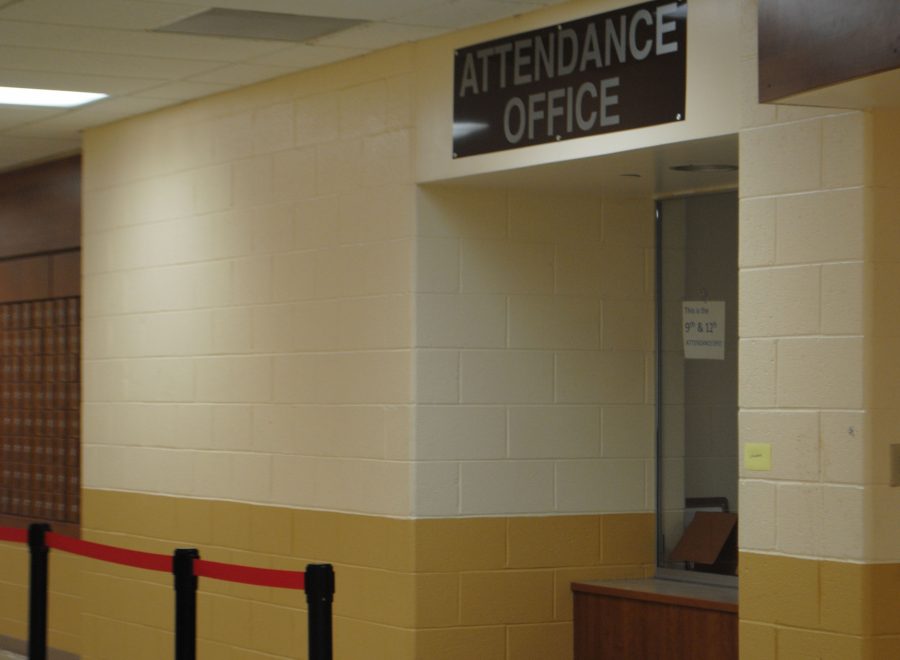The Viewpoint: Late policy harsh on students, lenient on absences
Students who are late are required to sign in at the attendance office.
If a student is late to school, instead of missing the entire day, their lateness can lead to repercussions of greater magnitude than simply not showing up to school. This discrepancy in policies has left some students frustrated.
The student handbook states that an “unjustified partial absence…will be treated with the same seriousness as an unexcused absence with similar consequences.” This leads students to believe that lateness and absence will be treated equally in the eyes of disciplinarians, yet if a student is late more than three times in a marking period without a proper reason, they receive a detention, while if a student has three unexcused absences, they incur no repercussions. In fact, students must be absent 15 times within a marking period or 30 days within a year to incur any disciplinary actions at all. In addition to this, absences are often automatically considered to be excused.
Students can turn in notes to excuse their lateness or absence, avoiding repercussions. Acceptable excuses include things like college visits, illness and emergencies. Despite these accommodations, if a student is able to come into school instead of being absent for the entire day, it should be viewed more favorably than if a student were to miss the school day entirely.
Students often choose to miss entire school day, rather than to be late and face detention, despite missing less class time than if they had been completely absent.
The stricter enforcement of late policies than of absent policies encourages students to miss more class time than need be in order to avoid wanton disciplinary action. This policy demonstrates a public high school, an institution meant to educate the masses, valuing punctuality over learning, and in doing so, betraying their mission to better the knowledge base of students above all else.







